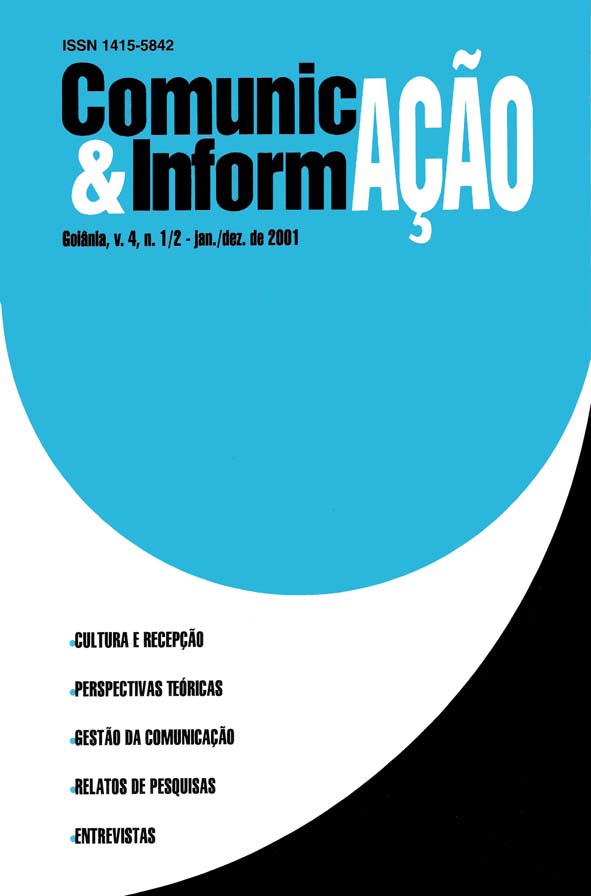Enviar Submissão
Informações
Este periódico científico possui a Creative Commons CC-BY-NC 4.0.
Revista Científica do Programa de Pós-Graduação em Comunicação da Universidade Federal de Goiás (PPGCom/ UFG) - Qualis A3
E-ISSN: 2317-675X
Avenida Esperança s/n, Campus Samambaia, Goiânia / GO - Brasil - CEP 74690-900
Programa de Pós-Graduação em Comunicação (PPGCOM)
Faculdade de Informação e Comunicação (FIC)
Universidade Federal de Goiás (UFG)
Fone: 62 3521-1514
Email: revista.ppgcom@ufg.br
Redes sociais:



